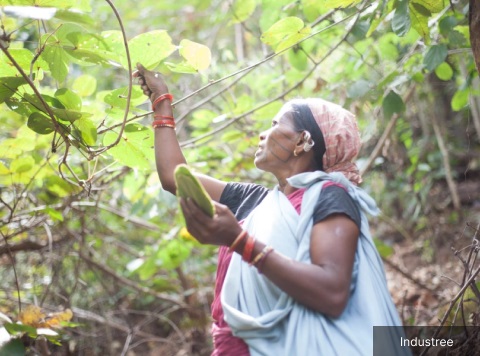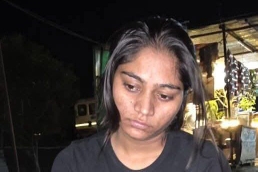Sarita Raut, a resident of Budhiya village of Balaghat district of Madhya Pradesh, gets emotional while sharing the story of her life on the Mahila Kisan Manch held in Bhopal. She remembers how she raised the voice of the rights of the women of her village along with the tired responsibilities of the fields-a journey that changed the direction of her life.
Sarita Raut said, “I was married in 2005, and for 17 years I used to go to fill water from the well 2 kilometers at 3 in the morning. If it was late, the well would have dried up due to heat and we would have to return empty handed.” He said, “Now water is found in a tap winding in my house, and this has brought a big change in my life.” She says, “Now I get time to do more meaningful work.”
The Water Life Mission, which started in 2022, has become a boon for him and many other women in his village. The objective of this scheme is to provide clean and adequate water through tap to every rural house by 2024.
Sarita, two daughters and a son’s mother Sarita, has been associated with farming since childhood. She performs organic farming of Dhani (paddy) and plays an active role in the form of Community Resource Person (CRP) with a non-profit institution called provision, which helps rural women earn sustainable livelihood. Provided which is part of the Climate Rise Alliance-it is an alliance of organizations that works towards reducing the effects of climate change.
To become a CRP, a woman is usually selected from self -help groups (SHG) or any such community organization. These women guide various issues related to farming in their villages. From crop selection to natural farming techniques and measures to increase yield – they help farmers at every step.
As part of her role, Sarita visits several villages in Balaghat district, where she along with other CRP “Didis” finds practical solutions to farming problems. For example, in Khursuda village of Balaghat district, he and his team played an important role in building a net house – this is a structure that protects crops from pests, strong winds, excessive sun and heavy rains. Sarita says, “So far 14 farmers have benefited from this initiative and have been motivated towards organic farming.”
For farmers facing climate change, this inclination towards organic farming has brought relief. She says, “If all the seasons go on their scheduled time, then everything is good.” Bay says, “There are no modern irrigation systems here. Our farmers are dependent on rain. If the monsoon does not come correct, then the farming is in trouble. The lack of resources ends our livelihood.”
Despite its active participation in the field of farming, Sarita’s real inspiration is to advocate women’s rights. They make women aware of their legal and social rights through training programs. Along with this, she also works to empower women financially – “I teach them to write checks, withdraw money from ATM and manage their money properly!”
When it comes to participation in women’s cultivation, Sarita says, “If we only talk to women personally, it doesn’t matter much. But when we join through SHG and other organizations, only real changes come.”
Lack of resources and deprived of the ownership of the land makes the situation of women even more critical. Their message to the new generation girls is: “Do any work, but stand on your feet. Do not depend on anyone – make your place in this world yourself.”






